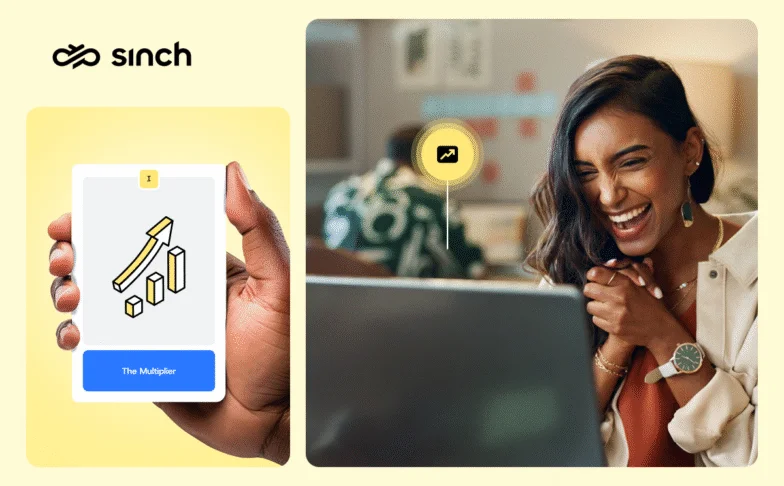Insights
RCS and the customer journey: Transforming connections at every step

Despite what you may have learned in a traditional marketing class, customer journeys are anything but one-size-fits-all. Some people will only engage with a brand once, while others interact across multiple channels over days, weeks, or months. And while these paths may be unpredictable, one thing’s for sure – consumers want every experience to be relevant, timely, and easy.
This means it’s time for businesses to shift their approach to digital customer communications. It’s time to move away from one-way, generic messages to personalized, customer-centric ones. Instead of focusing on what they want to push out, brands must consider what customers truly need: relevant information, smooth interactions, and a sense of security. Just like personal connections, meaningful brand interactions build trust and loyalty.
That’s where Rich Communication Services (RCS) comes in. RCS is a rich messaging channel that helps brands connect with customers in a meaningful and natural way, whether in their first interaction or one of many.
In this article, we’ll go through how businesses are grappling with rising customer expectations and how RCS supports better customer experiences based on our 2025 framework for digital business communications. Let’s dive in.
The power of RCS along the customer journey
In our 2025 global consumer survey, 42% of consumers said they expect personalized messages, and 29% said they want product recommendations based on their past behavior. Changing consumer expectations are part of what’s pushing brands to rethink their omnichannel communications strategies, focusing on what truly drives customer experience: keeping people engaged, informed, safe, and happy on their preferred channels.
Enter RCS. It has the reach of SMS, delivering messages to peoples’ native mobile inboxes, but with the richness of modern conversational messaging, like verified sender profiles, interactive elements like carousels, and rich visuals. It’s no surprise that 40% of business leaders said they believe RCS will increase customer engagement.
Businesses that use RCS have had results speak for themselves:
- Higher open rates: Because personalized, visually rich messages grab attention.
- More engagements: Timely, interactive elements make it easy for people to act.
- And stronger customer connections: As relevant content builds trust and loyalty.
Think of it this way: Instead of sending basic updates, a retailer could use RCS to let customers track their order in real time, or a travel brand can showcase destinations with tappable images. With RCS, businesses are creating experiences that customers actually want to be part of because they’re unique, engaging, and real.
Engaging customers with marketing campaigns
Marketing campaigns are essential for driving sales, but with so much noise in consumers’ inboxes, getting your message right is crucial. Consumers opt into messaging programs because they expect value in return – not generic content. When your mobile marketing adds real value, customers will stay engaged, which in turn will drive stronger relationships and generate sales.
Our 2025 research shows the opportunity: More than 70% of consumers believe personalized shopping recommendations from an AI chatbot could be helpful. That’s exactly the kind of interactive experience RCS makes possible.
With RCS, marketing campaigns become conversations:
- Interactivity: Customers can take action instantly by browsing carousels and tapping buttons with options like “Add to Cart” or “Book Now.”
- Personalization: Marketers can use customer data to send RCS campaigns that feel relevant with tailored recommendations, images, and more.
- Rich media: Videos, GIFs, high-quality images, and more grab attention to make messages stand out.
- Advanced analytics: Delivery receipts show you not only when a message was delivered but when someone has read it – this helps marketers make their campaigns more and more engaging.
When Clarins, a global cosmetics company, discovered they could send RCS to both Android and iOS devices, they put it to the test for their holiday marketing campaign. Instead of plain text messages, they sent high-quality images and tappable buttons linking to an Advent calendar to showcase their offers. Customers could browse and add items to their carts without ever leaving their messaging app.
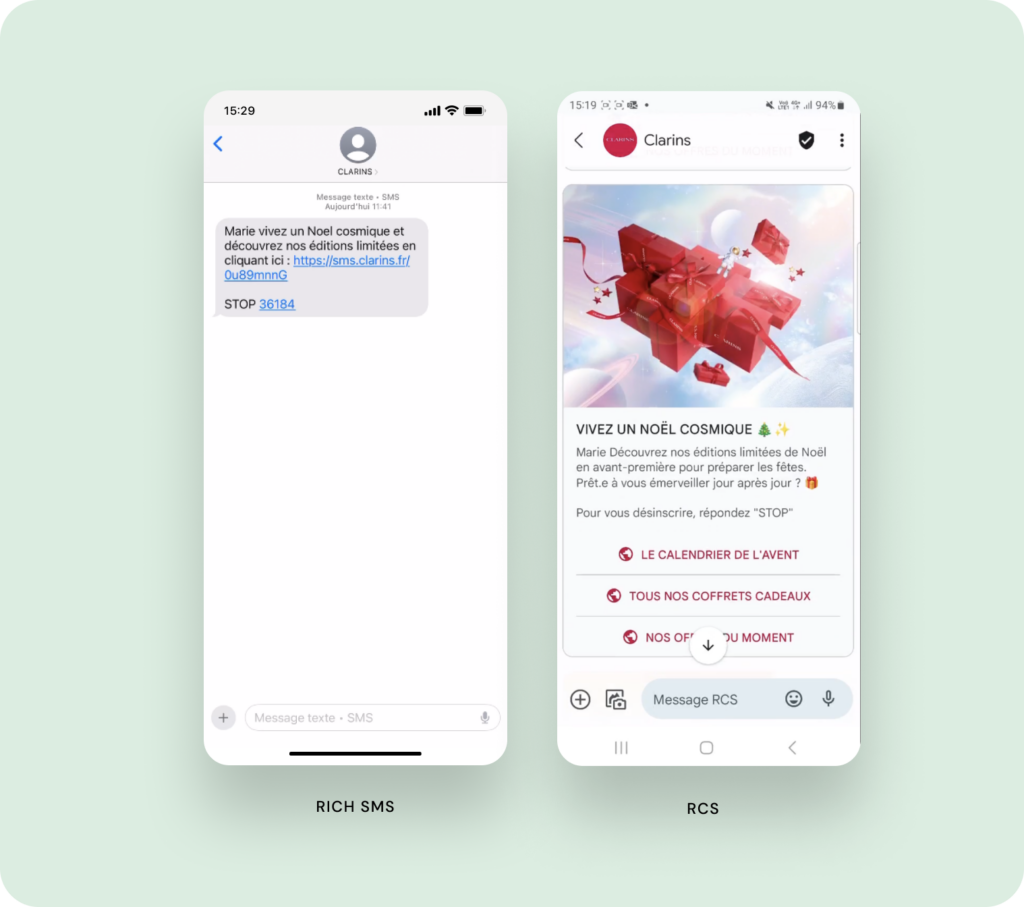
And the impact? Huge. Clarins saw click-through rates with RCS jump 2.5x compared to Rich SMS. It’s proof that when brands make their messages rich and personalized, people respond.
Keeping customers informed with alerts and notifications
Today’s consumers expect businesses to be proactive about giving them updates on their orders, appointments, and payments. Our 2025 research shows just how critical these updates are, revealing that 73% of consumers believe timely delivery notifications help prevent packages from being stolen.
But basic text alerts aren’t enough anymore. Consumers want timely, relevant updates that give them flexibility and control. And when businesses deliver this, it not only boosts customer satisfaction, but also helps brands better manage unexpected issues, creating smoother operations all around.
And that’s where RCS shines. Instead of simple, one-way notifications, businesses can send interactive, visually rich transactional messages that make it easy to take action.
This could look like a shipping update with an embedded map for real-time order tracking, an appointment reminder with tappable buttons that make it easy to confirm or reschedule, or even a delayed delivery notice with the option to change the time. RCS helps businesses turn simple alerts and updates into experiences that keep customers informed and in control.
EasyPark, a global leader in digital parking solutions, uses RCS to keep their millions of users informed with timely updates – and when they’re sending messages to a phone that isn’t RCS-compatible, they use SMS. This helps them make sure no customer misses important information.
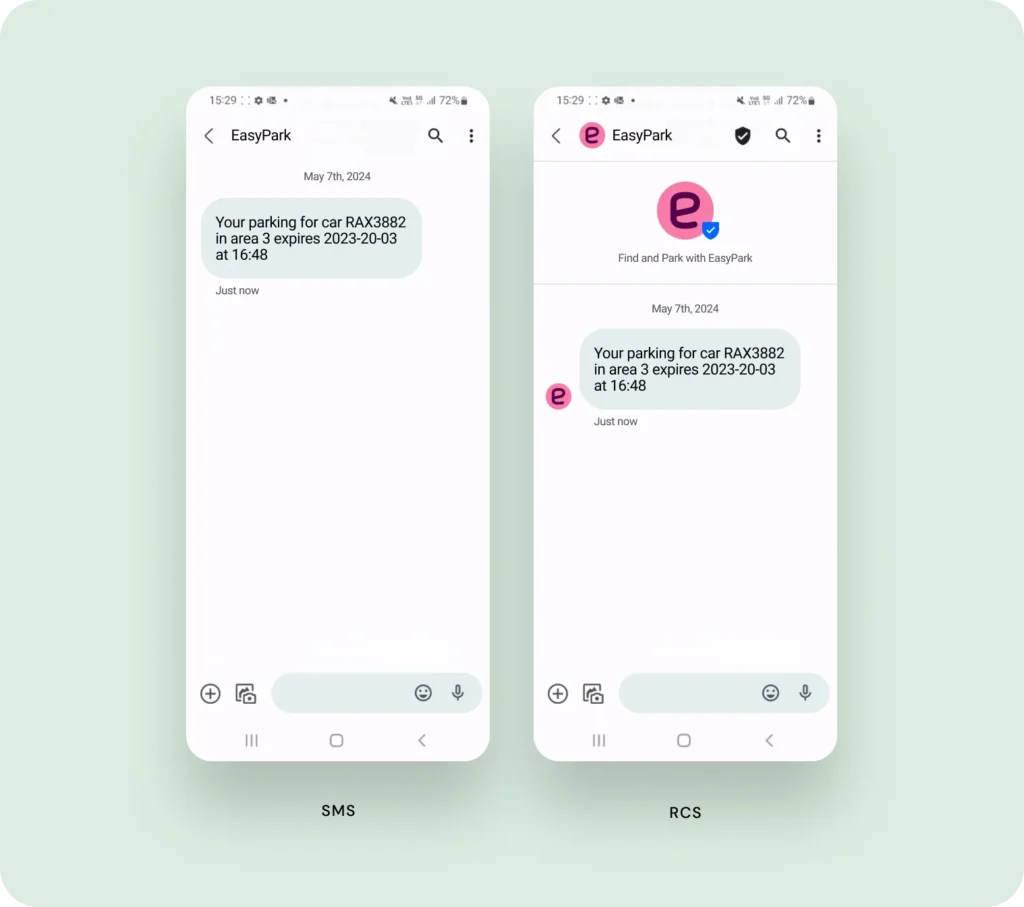
EasyPark uses RCS to ensure that customers always feel informed and in control of their parking experience, making it easier to manage their day.
Building trust with identity and verification
With someone falling victim to a cyberattack every 11 seconds, businesses need to earn customer trust. Consumers want reassurance that their personal data is safe in a business’s hands. More than half of consumers in 2025 told us they’ve received a legitimate message from a brand in the last year that they initially found suspicious. And when people don’t feel secure, they’ll take their business elsewhere.
That’s why having a strong identity verification plan in place is so important. From account sign-ups to logins and sensitive transactions, verification builds confidence at every step.
RCS strengthens this process with built-in protections that make verification messages more secure and recognizable, like:
- Verified sender IDs: This process makes sure businesses are authenticated by mobile operators before sending messages, so customers know they’re legitimate.
- Branded elements: A verified business’s logo and name are in every message, reinforcing authenticity.
- Stronger security: RCS messages are encrypted in transit when sent by Google, offering better protection than SMS.
Take one-time passwords (OTPs) as an example. Businesses that send OTPs via RCS benefit from verified sender profiles, making it much harder for scammers to impersonate their brands. Plus, branded messages reduce the risk of phishing, creating a safer experience for customers. And the best part? There are no added steps for someone to verify their identity via an RCS OTP versus an SMS one, but with RCS they get a better, more secure experience.
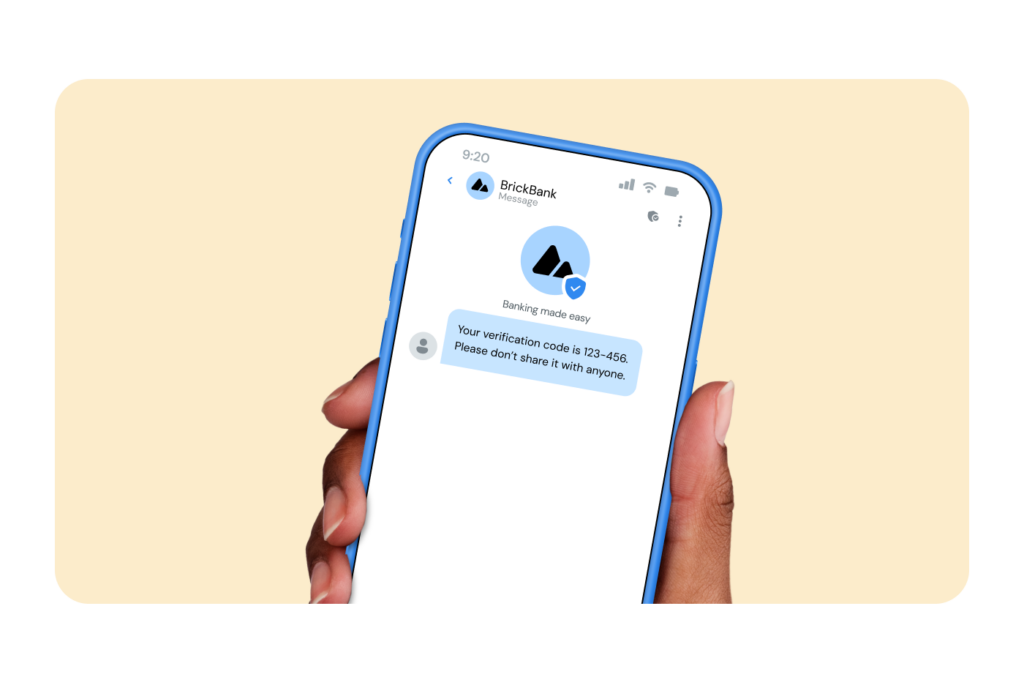
Creating satisfying customer service experiences
Nobody likes repeating themselves. When customers reach out to support, they expect quick, efficient help without having to restate their issue across channels and agents. A frustrating customer service experience can turn a minor problem into a lost customer.
RCS helps address this issue by keeping everything in one conversation. After clicking “Contact support” in an RCS conversation, customers can text an integrated AI chatbot for quick troubleshooting, and then transition to a live agent if needed, without having to switch apps and without that agent losing context of the previous conversation. This helps customers get their questions answered faster – and since 76% of consumers say they’re open to handling returns and exchanges directly through their phone’s native messaging app, RCS meets them where they already are.
Even more than troubleshooting, RCS can make customer service interactions more engaging and useful. A customer could share photos or videos directly in the chat to help describe their issue, and a business could respond with step-by-step guidance or how-to videos.
Even after a purchase, a brand could use RCS to:
- Provide delivery tracking updates
- Offer product tips and maintenance reminders
- Send personalized thank you messages and loyalty rewards
- Give setup instructions
- Send reminders for subscription renewals
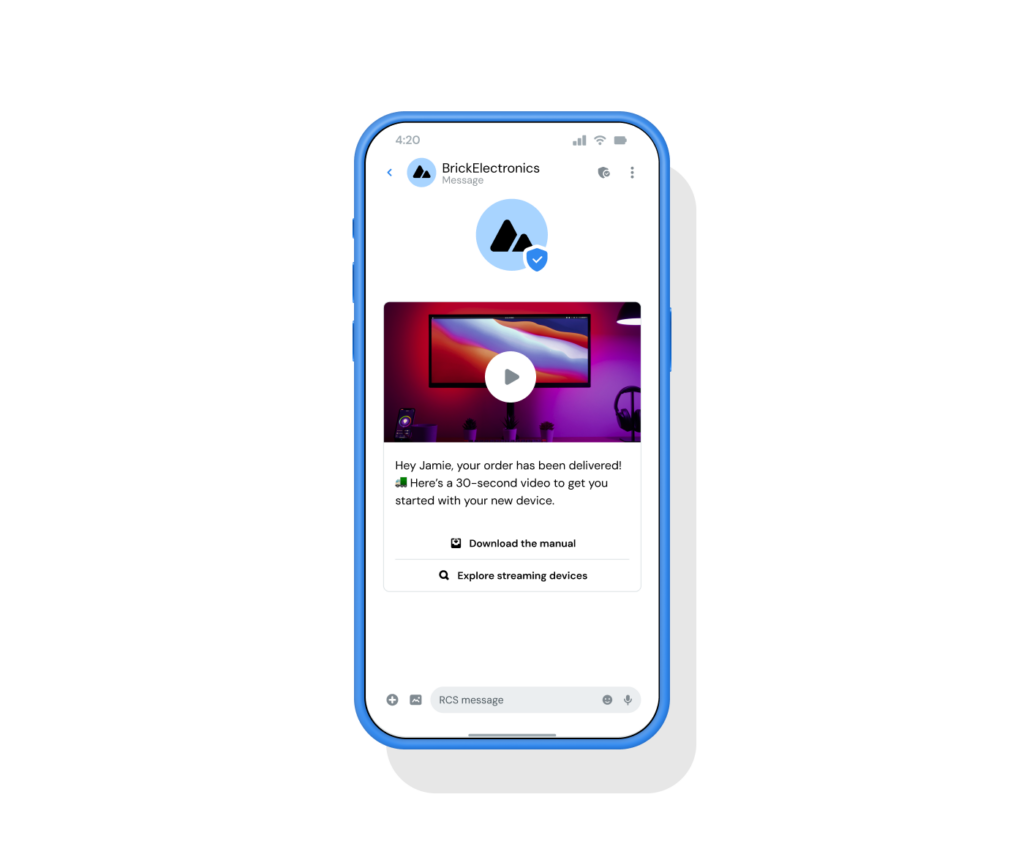
The bottom line? When their support experience feels effortless, customers feel valued, and valued customers stick around.
A quick note on WhatsApp: While this article focuses on RCS, WhatsApp also enables branded, conversational messaging. Used together, RCS and WhatsApp give businesses the flexibility to connect with customers on the channels they trust most. Learn about WhatsApp Business API.
Reimagine your customers’ journeys with RCS
Your customers’ journeys with your brand are as unique as they are, filled with experiences that shape their perception of your brand. That’s why businesses need to move from a one-size-fits-all approach and focus on building real connections one interaction at a time.
With RCS, brands can do just that: Keep customers engaged with personalized marketing, informed with real-time updates, secure with verified messaging, and happy by delivering seamless support. And because it all happens within a single, familiar channel, every interaction feels effortless, timely, and connected.
If you’re looking for a turnkey application or a flexible API to send branded messaging, check out Sinch Engage and Sinch Conversation API to help you with your business’ messaging needs. Or, if you’re ready to transform how you engage with customers, book a time to chat with an expert and see how RCS can help.



